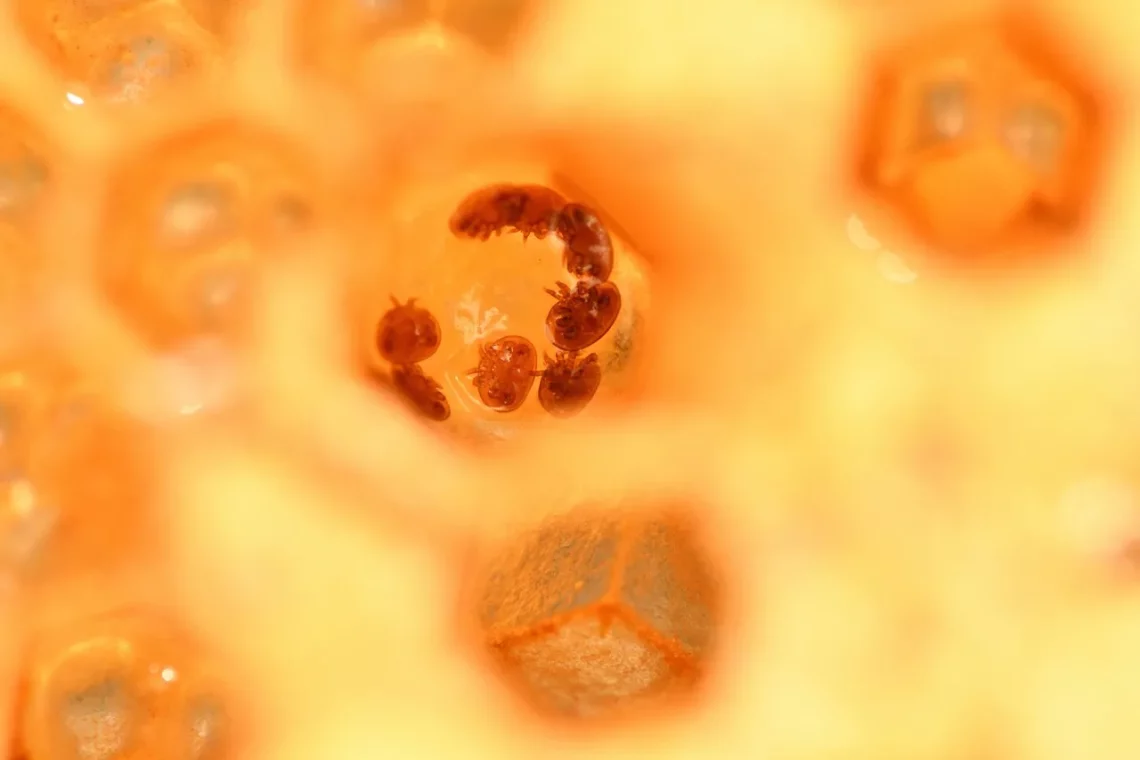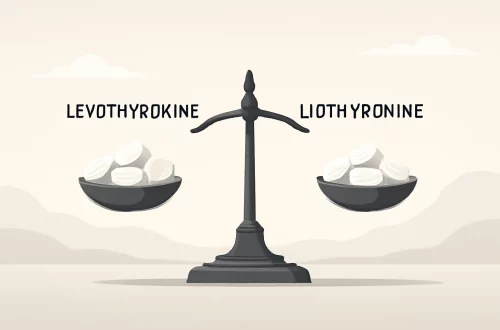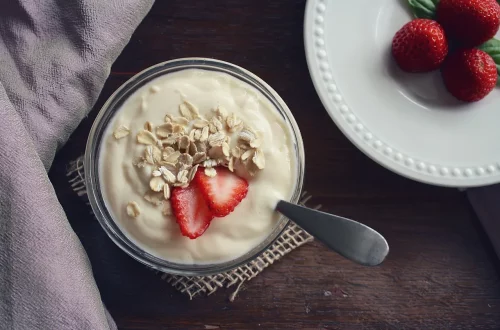
Effective Ways to Eliminate Mites in Your Chickens
Keeping chickens is a rewarding endeavor, but it comes with its challenges. One of the most common yet frustrating issues that poultry keepers face is the presence of mites. These tiny parasites can wreak havoc on your flock, causing stress, discomfort, and even health problems. Mites feed on the blood of chickens, leading to anemia and decreased egg production. Beyond the physical effects on the birds, an infestation can also impact your entire flock’s overall well-being.
Understanding the life cycle and behavior of mites is crucial for effective management. These pests thrive in warm, humid environments, making chicken coops a perfect breeding ground. Regular inspections and proactive measures are essential in preventing and eliminating mite infestations. Adopting a holistic approach that combines various methods can lead to a successful outcome.
As a chicken keeper, it’s imperative to stay vigilant and informed about the best practices for mite control. By implementing effective strategies, you can ensure your chickens remain healthy and happy, providing you with fresh eggs and companionship. Let’s explore some effective ways to eliminate mites in your chickens and create a comfortable living environment for your flock.
Understanding Mite Infestations in Chickens
Mite infestations in chickens are more common than many poultry keepers realize. These pests are not only a nuisance but can also lead to severe health issues if left unchecked. The most prevalent types of mites affecting chickens include red mites, northern fowl mites, and feather mites. Each type has its unique characteristics and behaviors, but they all share a common trait: they thrive on the blood of their hosts.
The red mite, for example, is notorious for its ability to hide during the day and come out at night to feed. This nocturnal feeding behavior can make it difficult for chicken owners to detect an infestation until it becomes severe. Chickens infested with mites may exhibit signs such as restlessness, feather pecking, reduced egg production, and overall poor health. Furthermore, if the infestation is significant, it can lead to anemia and even death.
Mites reproduce quickly, with a single female capable of laying hundreds of eggs in her lifetime. This rapid reproduction means that a small problem can escalate into a significant infestation in a short time frame. Regularly monitoring your flock and coop is essential to catch any signs of mites early on. Look for changes in behavior, feather loss, or the presence of tiny red or black specks in the bedding or on the birds themselves.
Creating a clean and dry environment is crucial in preventing mite infestations. Mites prefer dark, damp conditions, so ensuring that your chicken coop is well-ventilated and regularly cleaned can help reduce their likelihood. Additionally, maintaining a healthy diet for your chickens can bolster their immune systems, making them less susceptible to infestations.
In summary, understanding the types of mites that can affect your chickens and their behaviors is the first step in effective management. Keeping a close eye on your flock and maintaining a clean environment can significantly reduce the risk of infestations.
Natural Remedies for Mite Control
When it comes to eliminating mites in chickens, many poultry keepers prefer to start with natural remedies before resorting to chemical treatments. Natural solutions can be effective and less harmful to both the birds and the environment. Here are some popular natural methods to consider:
1. **Diatomaceous Earth (DE)**: This natural powder is made from the fossilized remains of tiny aquatic organisms. When chickens come into contact with DE, it damages the exoskeleton of mites, leading to dehydration and death. You can sprinkle DE in the coop, nesting boxes, and even directly onto your chickens. However, it’s essential to use food-grade DE and ensure that it does not create excessive dust, which can harm the birds’ respiratory systems.
2. **Essential Oils**: Certain essential oils have natural insecticidal properties that can help repel or eliminate mites. For example, lavender, tea tree, and eucalyptus oils are known for their pest-repelling qualities. You can dilute these oils in a carrier oil and apply them to your chickens’ feathers or use them in a spray form in the coop. Always ensure that you test a small area first to check for any adverse reactions.
3. **Vinegar**: Apple cider vinegar is another natural remedy that can help in controlling mite populations. Adding a small amount of apple cider vinegar to your chickens’ drinking water can boost their immune systems and help keep mites at bay. Additionally, using vinegar to clean the coop can help eliminate mite eggs and larvae.
4. **Herbal Remedies**: Certain herbs, such as neem and garlic, are known for their pest-repelling properties. You can create a herbal infusion and spray it in the coop or add these herbs to your chickens’ diet. Garlic, in particular, is believed to improve the overall health of chickens and deter pests.
While natural remedies can be effective, they may require consistent application and monitoring to achieve the desired results. It’s crucial to combine these methods with good husbandry practices, such as regular cleaning and coop maintenance, to create an environment that is less conducive to mite infestations.
In conclusion, natural remedies can be a safe and effective way to manage mite issues in your chickens. By utilizing these methods, you can help ensure the health and well-being of your flock while minimizing the use of chemicals.
Chemical Treatments for Severe Infestations
In some cases, natural remedies may not be sufficient to control a severe mite infestation in your chickens. When faced with such a situation, chemical treatments can provide a more immediate and effective solution. However, it’s essential to use these products responsibly and follow all safety guidelines to protect your birds and yourself.
1. **Permethrin**: This synthetic insecticide is commonly used in poultry farming due to its effectiveness against mites and other parasites. Permethrin is available in various forms, including sprays and powders. When using permethrin, apply it directly to the chickens, focusing on areas where mites are likely to hide, such as around the vent and under the wings. Always adhere to the manufacturer’s instructions regarding dosage and application frequency.
2. **Ivermectin**: This broad-spectrum antiparasitic medication is effective against various parasites, including mites. Ivermectin is usually administered orally or through injections, and it can significantly reduce mite populations in a short period. However, it is crucial to follow the recommended dosage and consult with a veterinarian to ensure the safety and well-being of your chickens.
3. **Pyrethrin**: Derived from chrysanthemum flowers, pyrethrin is a natural insecticide that can also be effective against mites. It’s important to note that while pyrethrin is considered less harmful to beneficial insects, it can still pose risks to chickens if not used correctly. Always ensure proper ventilation and avoid overdosing when applying pyrethrin in the coop.
4. **Mite-Repellent Sprays**: Many commercial mite-repellent sprays are available specifically for poultry. These products are designed to be effective against mites while being safe for use around chickens. Before using any commercial product, read reviews and consult with other poultry keepers to determine the best options.
While chemical treatments can be effective, they should be used as a last resort after trying natural methods. It’s essential to remain vigilant and monitor your flock closely, as over-reliance on chemicals can lead to resistance and further complications in the future.
In summary, while natural remedies can often help control mite populations, severe infestations may require chemical treatments. Always prioritize the health and safety of your chickens when selecting and applying any treatments.
Preventive Measures for Long-Term Mite Control
Preventing mite infestations in your chickens is the best strategy for ensuring their health and well-being. Implementing proactive measures can save you from the headache of dealing with infestations down the line. Here are some effective preventive strategies to consider:
1. **Regular Cleaning**: One of the most critical steps in preventing mites is regular coop cleaning. Remove old bedding, droppings, and debris frequently to reduce mite habitats. Thoroughly clean the coop with a suitable disinfectant and ensure it is dry before adding fresh bedding. Regular cleaning will disrupt the mite life cycle and help prevent infestations.
2. **Proper Ventilation**: Mites thrive in warm, humid environments. Ensuring proper ventilation in your coop can help maintain a drier atmosphere, making it less conducive to mite infestations. Consider installing vents or windows to promote airflow, and avoid overcrowding your chickens, which can lead to increased humidity levels.
3. **Healthy Diet**: A well-balanced diet can help boost your chickens’ immune systems, making them less susceptible to mite infestations. Ensure that your flock receives a high-quality feed that meets their nutritional needs. Additionally, provide access to fresh fruits and vegetables, as these can contribute to their overall health.
4. **Monitor and Inspect**: Regularly inspect your chickens for signs of mites. Look for feather loss, excessive scratching, or changes in behavior. If you notice any signs of infestation, take immediate action to address the problem before it escalates. Early detection is key to successful mite management.
5. **Quarantine New Additions**: If you introduce new chickens to your flock, always quarantine them for at least two weeks before allowing them to mingle with your existing birds. This practice can help prevent the spread of mites and other diseases.
By incorporating these preventive measures into your chicken-keeping routine, you can significantly reduce the risk of mite infestations. Creating a clean, healthy environment will not only benefit your flock but also enhance their productivity and quality of life.
In conclusion, taking proactive steps to prevent mite infestations is crucial for maintaining the health and well-being of your chickens. By implementing a combination of cleaning, proper ventilation, a healthy diet, regular monitoring, and quarantine practices, you can keep your flock mite-free.
**Disclaimer**: This article is not a substitute for professional medical advice. Always consult a veterinarian or a qualified poultry health expert for any health concerns regarding your chickens.




